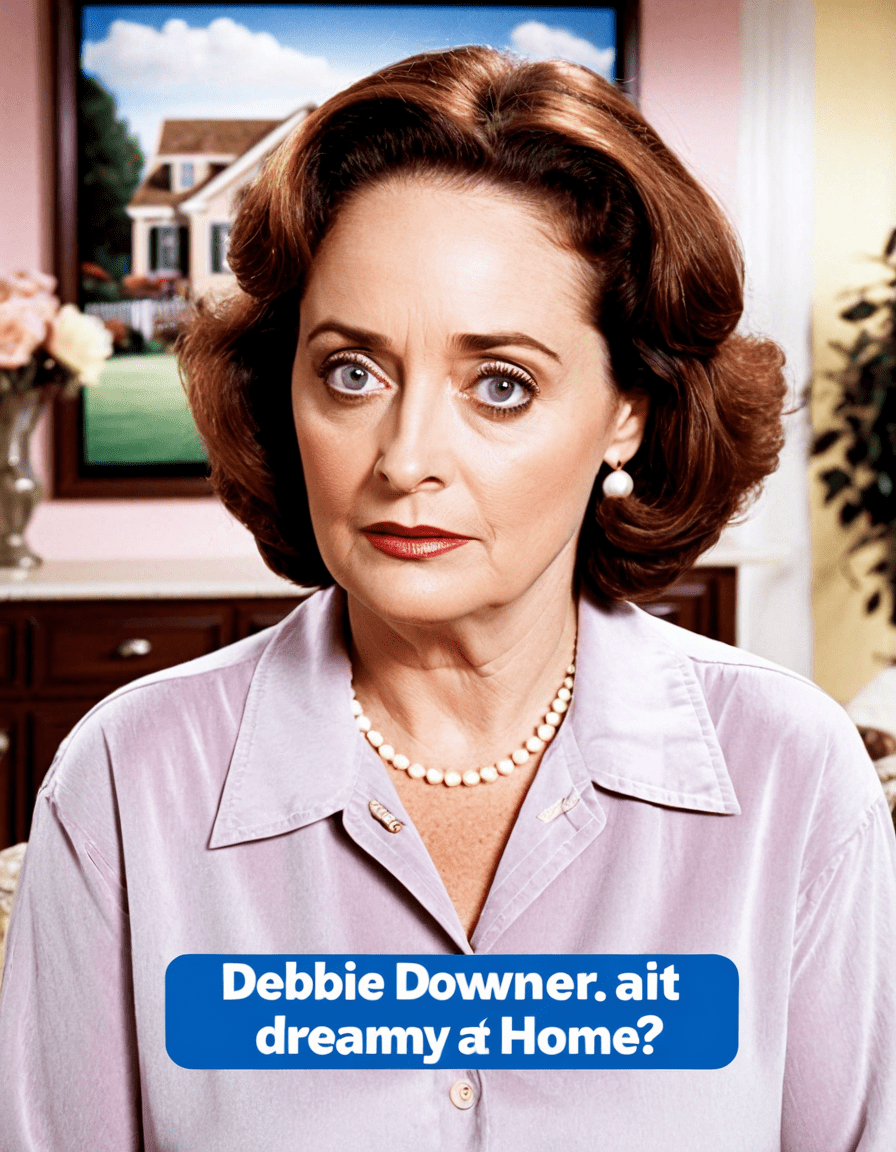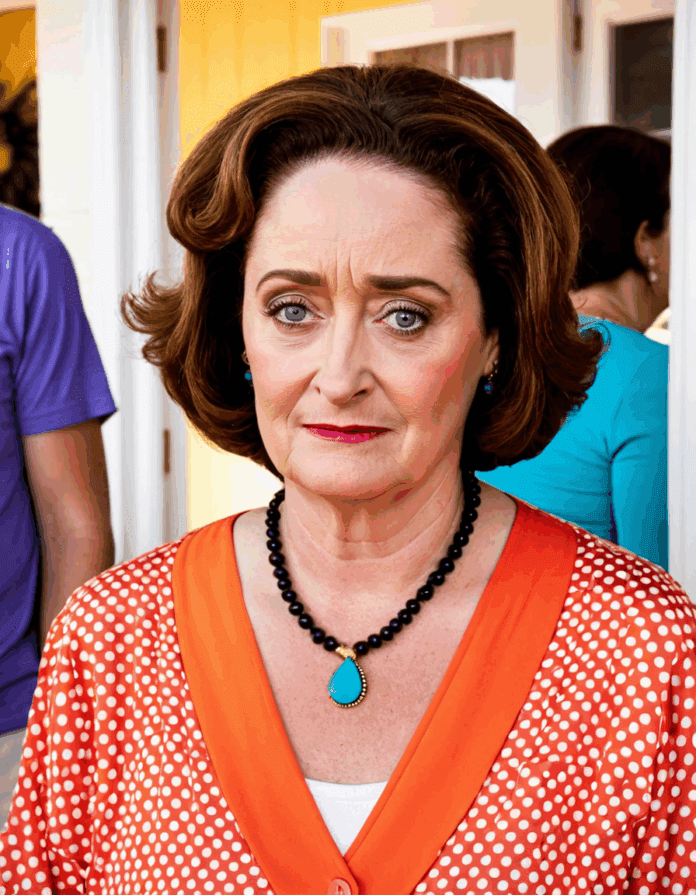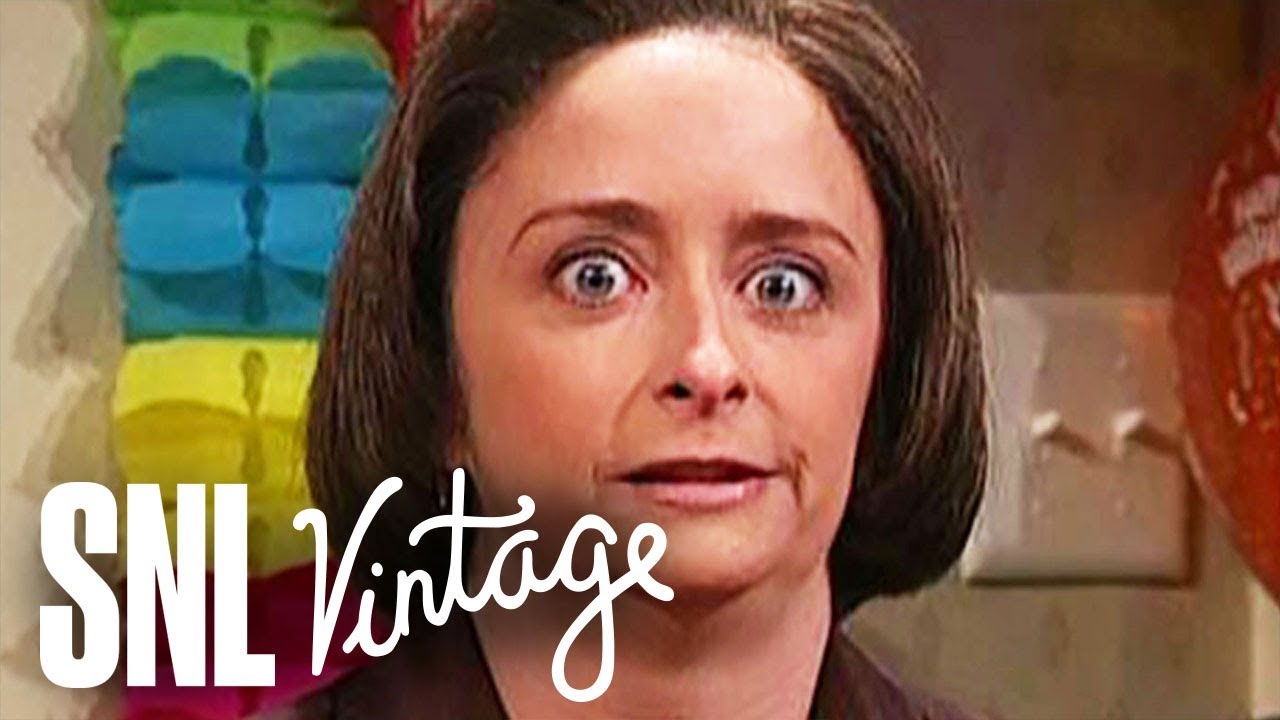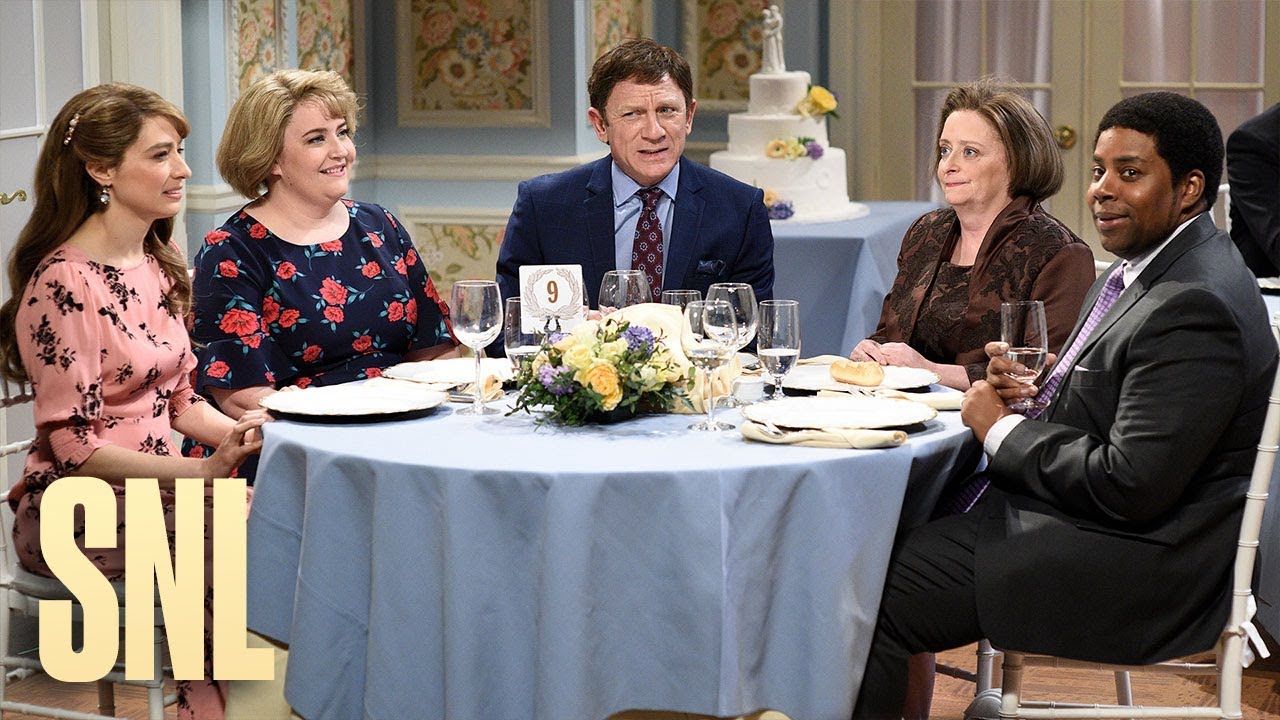1. What Is a Debbie Downer?
The term “Debbie Downer” has taken on a life of its own, representing individuals who consistently bring a negative perspective to conversations and situations. This phrase hails from a classic Saturday Night Live sketch where Rachel Dratch’s character gloomily dampened every joyous occasion. But let’s move beyond just the entertainment value — the impact of a Debbie Downer runs deep and can ripple through interpersonal relationships and workplace dynamics.
Pessimism is often intertwined with psychological factors. People labeled as Debbie Downers might see the world as a glass half-empty, triggering discomfort and defensiveness in others. They might inadvertently create a toxic environment, particularly noticeable in professional settings, as colleagues may start to mirror this negative energy. Have you ever been at a party when one person remarks, “Oh, this will probably rain on Saturday”? It can kill the buzz quicker than a popped balloon.
By examining the roots of Debbie Downer behavior, we can gain insight into how these attitudes affect not just individual perspectives but also the overall mood of a room — or an organization. In homes, offices, and social circles, understanding these dynamics can help us foster positivity!

2. The Six Traits That Define a Debbie Downer
1. Constant Negativity
Debbie Downers have a knack for focusing on what’s wrong rather than what’s right. Even at celebrations like birthdays or holidays, they might find something to complain about, steering the conversation toward potential pitfalls rather than enjoying the moment together. For instance, at a wedding, while everyone is toasting the ecstatic couple, a Debbie Downer might grimly warn about the divorce rate.
2. Fear of Success
Interestingly, many Debbie Downers wrestle with a fear of success. Celebrities like Jim Carrey have openly discussed their internal struggles, showcasing how even those who seem to have it all can be haunted by self-doubt. This fear leads them to shy away from opportunities for advancement, as they might believe they can’t handle potential success or fear disappointing others.
3. Inability to Celebrate Progress
You know it’s a problem when team achievements are overshadowed by one’s inability to acknowledge progress. Imagine a corporate team that hits its quarterly sales target getting met only with comments about one failed pitch. The negativity can be disheartening and ultimately stifles motivation.
4. Over-analyzing Situations
Debbie Downers often live in their heads; they overthink decisions to the max! This tendency leads them to examine every potential downside, making swift decision-making nearly impossible. A classic example occurs in tech firms where a product launch is delayed endlessly due to fears of user backlash.
5. Lack of Hope
In the realm of emotional wellbeing, hope is crucial. Sadly, those with a Debbie Downer disposition often find it tough to hold onto optimism. Their discourse might resemble social media influencers zeroing in on the darker aspects of societal issues, causing their audience to align with a more somber view of life.
6. Influencing Others
A Debbie Downer can inadvertently sap the energy and excitement from others around them. In larger organizations, just one person with this pessimistic attitude can cast a shadow over an entire team. For instance, during Kodak’s struggles, the prevailing negativity sapped enthusiasm and innovation.
3. The Roots of Pessimism: Where Does the Debbie Downer Mentality Come From?
Delving into the psyche of Debbie Downers reveals a mix of genetic factors and social influences forming their outlook. Individuals from childhoods emphasizing caution might develop a negative mindset as a protective measure, veering away from risks that could potentially lead to failures. It can often be traced back to households where failure is equated with disaster.
Consider a case study involving adults raised in hyper-competitive environments. There, a culture of imperfection ruling the day might spawn adults who instinctively brace for impact, leading to default pessimism. Similar patterns can be seen in societal attitudes toward public figures; just take a look at how public opinion can swiftly shift against a once-beloved celebrity — it’s fascinating and revealing!
As we navigate the conversation around Debbie Downers, it’s apparent that these attitudes aren’t just annoying but stem from deeper emotional or social issues that need addressing.
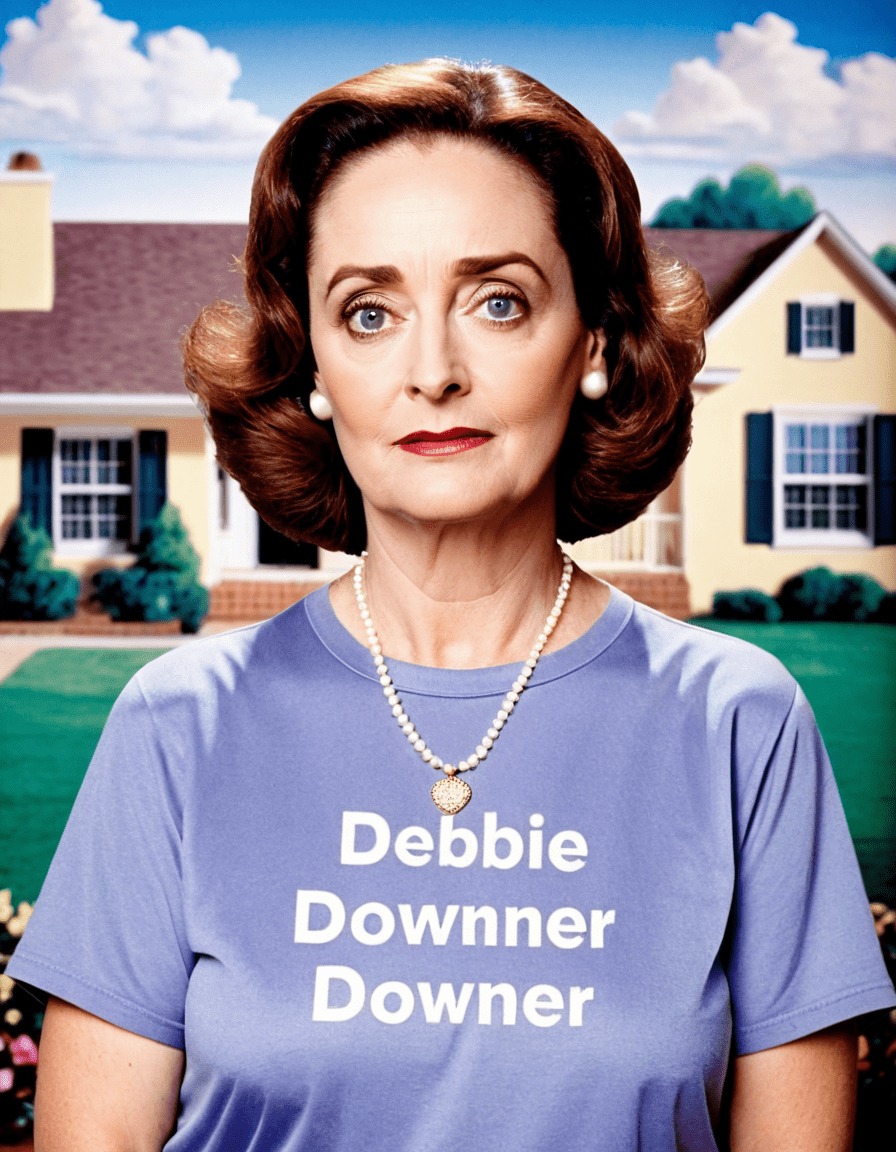
4. Strategies to Counteract the Debbie Downer Mindset
Dealing with a Debbie Downer requires effective strategy, kindness, and resilience. Here are a few practical approaches for anybody encountering a Debbie Downer, whether at home, work, or friends’ gatherings:
5. The Sociocultural Impact of Debbie Downers
The presence of Debbie Downers shapes cultural narratives surrounding mental health and emotional wellness. Pessimism can color public discourse, influencing how we perceive various issues. For example, the rise of “doomscrolling,” or the habit of endlessly consuming negative news, highlights how Debbie Downer attitudes permeate societal discussions.
When media prioritizes negative stories over uplifting ones, it only feeds the Debbie Downer mentality. Just think about how consistently hearing bad news can make us all feel a bit more hopeless. As a society, this could lead to widespread despair surrounding topics like climate change or economic instability, affecting everyone’s outlook.
Recognizing these influences can promote healthier conversations about optimism and draw attention to the importance of cultivating a positive mindset in various aspects of life.
Navigating Life with Debbie Downers
Understanding the Debbie Downer mindset allows us to foster empathy rather than irritation. Conversations with Debbie Downers can uncover important truths and pave the way for transformative discussions. Instead of avoiding them, engaging might reveal underlying fears or issues needing attention, potentially converting pessimism into opportunities for growth.
Just as businesses learn to pivot after setbacks, individuals can also adapt by reframing negativity into pathways for solidarity and understanding. By cultivating environments where constructive dialogue flourishes, we allow positivity to thrive. So while Debbie Downers might exist, they don’t have to dominate our conversations or lives. Embrace these dynamics, and you could find a chance to turn downer moments into uplifting ones.
In the ever-changing societal landscape, every interaction influences our collective outlook. Armed with knowledge and understanding, we can challenge the Debbie Downer mentality and replace it with a more hopeful perspective for all.
Debbie Downer: The Famous Pessimist You Need to Know
A Little Background on Debbie Downer
If you’ve ever watched “Saturday Night Live,” you’re probably familiar with the infamous character Debbie Downer, expertly played by Rachel Dratch. This character isn’t just a funny trope; she exemplifies a type of person we all know who seems to find the dark cloud in every silver lining. As relatable as she is, did you know that the concept of a “Debbie Downer” has seeped beyond comedy into various aspects of life, including financial advice? Just like the pros at Kaplan Financial highlight the importance of staying optimistic while planning your future, Debbie’s pessimism serves as a cautionary tale against letting negativity take the wheel.
The Endless Influence of Debbie Downer
Interestingly, Debbie Downer’s influence is so broad that it’s even reverberated in the world of celebrities. Take, for example, professional basketball player Hassan Whiteside, who often faced criticism and naysayers throughout his career. His ability to rise above the “Debbie Downer” mentality in sports is a testament to how a positive outlook can flip the script on negativity. Plus, who can forget iconic moments in pop culture that echo a Debbie Downer vibe, like certain scenes from films directed by Taylor hackford? The pessimistic undertones in media remind us how pervasive this mindset can be, for laughs or life lessons.
Fun Facts and Trivia to Brighten Your Day
One fun fact: the phrase “Debbie Downer” gained popularity after its debut on “SNL” in the early 2000s, quickly becoming a part of our everyday vernacular. Similarly, the comedic idea persists in various shows, comparable to different storylines in the Joe Pickett series, where characters often grapple with negativity. Moreover, in a twist of irony, a recent survey found that people with a downer outlook are more prone to overlook the simple joys in life, like spending quality time with loved ones—a theme echoed in many heartfelt narratives, like those found in I Love My Bf articles.
Whether you’re out shopping for practical items like the stylish Baggu Crescent bag or just enjoying your day, carrying a spark of optimism can sometimes ward off the Debbie Downer spirit. Think about it—the takeaway could be clear: life’s too short for doom and gloom, so let’s lift each other up instead of indulging in the dread that often finds its way into conversations, much like remembering the tragic story of the Princess Diana crash. A little positivity can go a long way, especially in the unpredictable journey of home buying and beyond. Remember, embracing happiness over negativity can lead to truly rewarding experiences!
